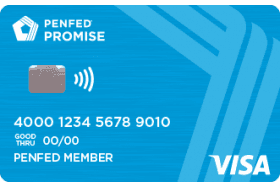- myFICO® Forums
- FICO Scoring and Other Credit Topics
- Understanding FICO® Scoring
- Re: Inactive card reporting question
- Subscribe to RSS Feed
- Mark Topic as New
- Mark Topic as Read
- Float this Topic for Current User
- Bookmark
- Subscribe
- Mute
- Printer Friendly Page
Inactive card reporting question
Is your credit card giving you the perks you want?
Browse credit cards from a variety of issuers to see if there's a better card for you.
- Mark as New
- Bookmark
- Subscribe
- Mute
- Subscribe to RSS Feed
- Permalink
- Report Inappropriate Content
Re: Inactive card reporting question
@dynamicvb wrote:I’ve seen several threads about how an inactive card reporting can drop your scores. I’m not sure how long a card would have to not report in order to qualify. The reason I’m asking is I have a capital one with no rewards and I have not had it report any balance in 4-5 months. I haven’t even used the card. I did decide I should at least make a small charge on it today just to show some use to cap one, but I got to thinking should I not pay this one off before the report date to show the CRAs some usage or does it matter? If it does matter how often should I make sure to let a card report something to avoid the inactive account penalty?
Cards don't need to report balances to be considered active. Certainly they are active if used but balance is paid to zero before close date.
I do know Fico has access to payment history such as pasted below. I believe that is where late data is pulled from that is used in scoring (# lates, severity of lates and age of lates). Although your monitoring notification may be triggered by a string of no reported balances I don't think Fico looks at that.
Looking at the above (direct from a CRA report) I'd wonder how a rating designated by an "X" is viewed. Other CCs (see below) use an "ND" instead of an "X". I see "OK" being reported in many of the months where there was no activity. How is a rating of X or ND evaluated vs an OK?
[Note payment history by account data - about 4 years worth is available thru Credit Karma for those that don't have routine access thru a monitoring service]
Fico 8: .......EQ 850 TU 850 EX 850
Fico 4 .....:. EQ 809 TU 823 EX 830 EX Fico 98: 842
Fico 8 BC:. EQ 892 TU 900 EX 900
Fico 8 AU:. EQ 887 TU 897 EX 899
Fico 4 BC:. EQ 826 TU 858, EX Fico 98 BC: 870
Fico 4 AU:. EQ 831 TU 872, EX Fico 98 AU: 861
VS 3.0:...... EQ 835 TU 835 EX 835
CBIS: ........EQ LN Auto 940 EQ LN Home 870 TU Auto 902 TU Home 950
- Mark as New
- Bookmark
- Subscribe
- Mute
- Subscribe to RSS Feed
- Permalink
- Report Inappropriate Content
Re: Inactive card reporting question
@Anonymous wrote:Then there are the people that report a score DROP when "an inactive card becomes active." I've never been able to figure that one out. Probably just the classic confusing/correlating an alert with a score change that had nothing to do with it, I suppose.
As @Revelate once reminded me, the alert "inactive card becomes active" is merely a user-configured alert on MyFICO.































Total revolving limits 568220 (504020 reporting) FICO 8: EQ 689 TU 691 EX 682
- Mark as New
- Bookmark
- Subscribe
- Mute
- Subscribe to RSS Feed
- Permalink
- Report Inappropriate Content
Re: Inactive card reporting question
- Mark as New
- Bookmark
- Subscribe
- Mute
- Subscribe to RSS Feed
- Permalink
- Report Inappropriate Content
Re: Inactive card reporting question
I just got a recent inactivity alert a couple of days ago. Zero score change. My question here is how long does an account have to go to be considered inactive?
- Mark as New
- Bookmark
- Subscribe
- Mute
- Subscribe to RSS Feed
- Permalink
- Report Inappropriate Content
Re: Inactive card reporting question
@Anonymous wrote:
Interesting and good to know. Any score change then would be completely unrelated to the alert... Otherwise we'd have ourselves user configured score changes 😉
Correct.
In my case I set up as many alerts as possible, on the off chance that that will give me closer to real time FICO 8 score updating.































Total revolving limits 568220 (504020 reporting) FICO 8: EQ 689 TU 691 EX 682
- Mark as New
- Bookmark
- Subscribe
- Mute
- Subscribe to RSS Feed
- Permalink
- Report Inappropriate Content
Re: Inactive card reporting question
@Anonymous, I got the alert on my AMEX card when it cut a positive balance after cutting two balances of zero. As I mentioned, I've never seen an alert on cards that report the date of last activity.
- Mark as New
- Bookmark
- Subscribe
- Mute
- Subscribe to RSS Feed
- Permalink
- Report Inappropriate Content
Re: Inactive card reporting question
@Anonymous wrote:I just got a recent inactivity alert a couple of days ago. Zero score change. My question here is how long does an account have to go to be considered inactive?
The shortest ones I've seen have been 3 months.

- Mark as New
- Bookmark
- Subscribe
- Mute
- Subscribe to RSS Feed
- Permalink
- Report Inappropriate Content
Re: Inactive card reporting question
@Anonymous wrote:I just got a recent inactivity alert a couple of days ago. Zero score change. My question here is how long does an account have to go to be considered inactive?
The language used in the actual alert implies "three months."
But again, bear in mind this is a calculation/cutoff and alert used by a particular credit monitoring service (CMS) to help protect its subscribers against fraud. The alert does not have anything to do with what the actual FICO algorithm is doing in producing its score.
- Mark as New
- Bookmark
- Subscribe
- Mute
- Subscribe to RSS Feed
- Permalink
- Report Inappropriate Content
Re: Inactive card reporting question
Although I imagine I have been clear in my previous posts why I think that the "alert" in question has nothing to do with a score change, there's a related (but separate) question, which is whether some or all of the FICO algorithms have built into them a consideration of whether an account is "active."
My tentative belief is that at least a few of them do. First off it wouldn't surprise me just a priori. If a guy has a card that he hasn't used for years, it makes sense why FICO might drop it, on the grounds that he may simply have lost it and it no longer reflects a tradeline that he occasionally uses and effectively manages.
But the stronger reason is that we did have one case study in this, posted a couple years ago. A guy had exactly one credit card and one mortgage on his profile -- nothing else. (No closed accounts, etc.) He stopped using his credit card (but it continued as open in good standing with a zero balance). Exactly 12 months later his score took a pronouned dive. It was as if FICO had begun ignoring that card -- and since he had no other revolving accounts, his Credit Mix and other scoring categories were all affected. He pulled his reports at month 13 and 14 and they showed the card with exactly the same status as before (open in good standing).
Let's assume for just a seecond that some FICO models drop from consideration open accounts in good standing after 12 months of inactivity. As BBS pointed out earlier, this should have no practical impact on a person if he is engaged in good credit hygiene. I.e. he has at at least a few other cards and his utilization on them is low. And another part of good credit hygiene is to use any card once a year anyway, just to prevent it from being closed by the issuer, so that also prevents this from ever affecting a person.
- Mark as New
- Bookmark
- Subscribe
- Mute
- Subscribe to RSS Feed
- Permalink
- Report Inappropriate Content
Re: Inactive card reporting question
See,s their are differing opinions on this one. I think I’m just going to pay it off before report date. I had thought of just letting it report to see, but would not be a good test since it would increase the number of revolvers that reported a balance and I know for sure that is a hit. Perhaps the number of revolvers reporting a balance is really what others where reporting more than the length of time since a card has reported.



First Goal Score: 750+ Reached 3/2019
Next Goal all over 800


